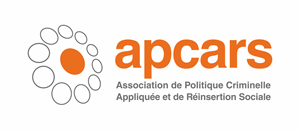For more than 30 years, APCARS has been participating in the prevention of delinquency by two main actions. We contribute in order that the penal sentence is fair and adapted. In addition, we facilitate the reintegration in society of those who have been sentenced.
A more enlightened justice is a more efficient justice
The first action consists of helping the justice system to better understand the offenders, that is, the persons who are suspected to have committed a misdemeanor or a criminal offense.
Our association was the first in France to carry out quick social investigations in the case of misdemeanors and today it performs close to 16,000 each year in the greater Paris region. For criminal cases, our personality investigations go into the depth necessitated by the increased risk of detention.
In complement to the police investigation and the conviction record, our investigations serve the justice system in their search to understand the personal history of these men and women, and this before taking a decision as to whether they are guilty or not.
This knowledge of the person’s biography and their social, family, and professional environment contributes in a concrete manner to the pronouncing of a sentence that takes into account the singularity of each individual.
The possible range of sentences is extremely wide: community-interest work, a suspended sentence with or without constraints (compulsory treatment, electronic bracelet, etc.) and of course as a last resort imprisonment.
When possible, the sentence should allow the person to maintain family links, keep their employment, receive treatment for an addiction or health condition, foster reintegration, and avoid exacerbating an already precarious situation.
Finally, an individualized sentence contributes to giving meaning to the punishment, and an offender who understands and accepts it is on the right path to avoid recidivism.
Preparing release from prison with an reintegration project and fighting against recidivism
The second action that we carry out consists of the reintegration of homeless persons sentenced to imprisonment.
Through social housing and assistance over several months, we help them to progressively reestablish their place in society.
Their needs are abundant. In fact, these homeless persons are 10 times more likely to be placed in provisional detention than others and they are 4 times more likely to be sentenced to prison, for the main reason that they lack a fixed residence (*).
It is crucial to state that a large portion of arrested or sentenced persons are living in precarity, with a low level of education, broken social and/or family ties, and multiple health problems.
If the prison sentence is not converted, there is 60% additional risk of recidivism (*) and it is thus vital for our society to anticipate as best as possible and construct a reintegration project adapted to the potential of each convicted person.
Preventing recidivism for convicted persons and contributing to social harmony are the priority objectives of our association.
Mr André ZERVUDACHI, President of APCARS
(*) University study by V. Gautron and JN. Rétière concerning 7,500 criminal cases concerning adults in 5 criminal courts in 2000, 2003, 2006, and 2009


